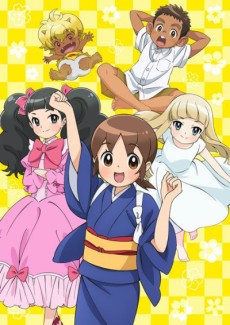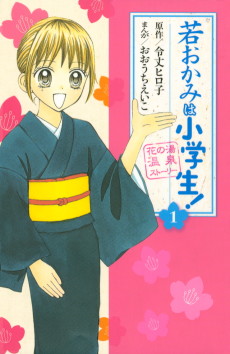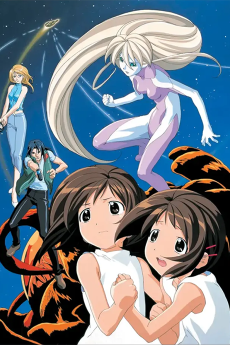WAKAOKAMI WA SHOUGAKUSEI! (MOVIE)
MOVIE
Dubbed
SOURCE
OTHER
RELEASE
September 21, 2018
LENGTH
94 min
DESCRIPTION
The film will tell a story not told in either the original book series or the television series — specifically, a story about "Okko" and her parents.
(Source: Anime News Network)
CAST
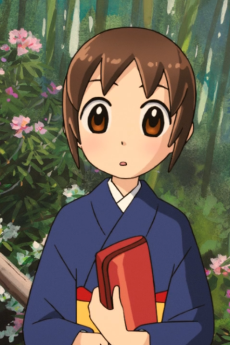
Oriko Seki
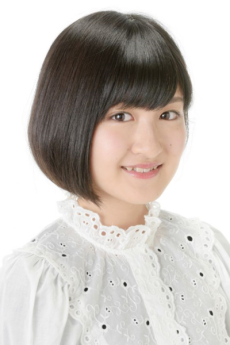
Seiran Kobayashi
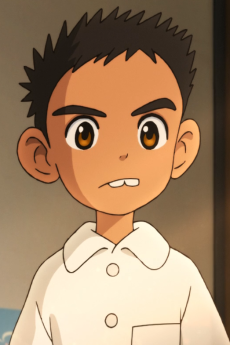
Makoto Tateuri
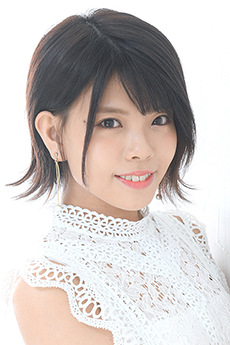
Satsumi Matsuda
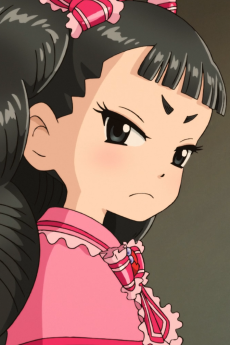
Matsuki Akino
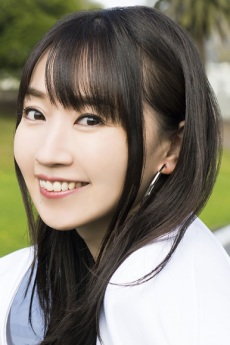
Nana Mizuki
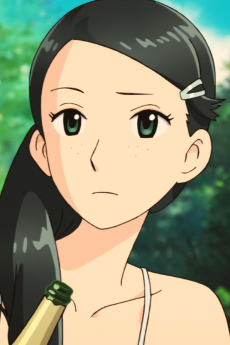
Seiko Suiryou
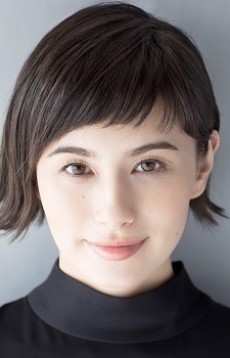
Chiaki Horan
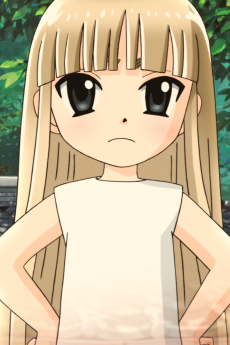
Miyo Akino
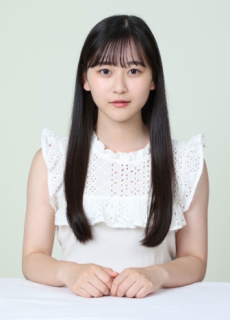
Rina Endou
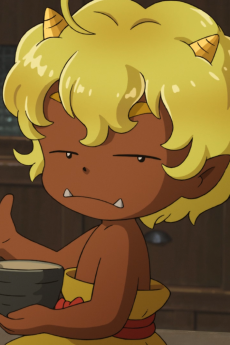
Suzuki
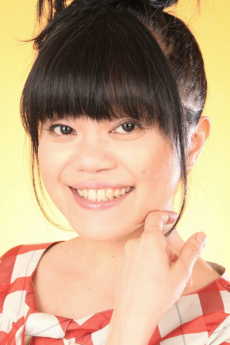
Etsuko Kozakura
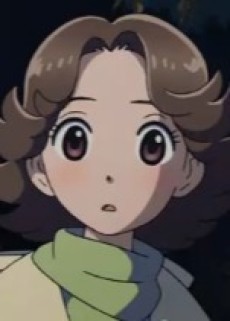
Torako Kise
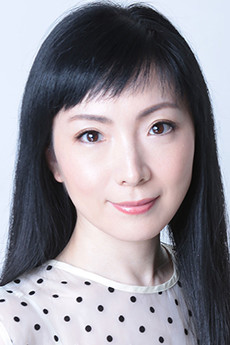
Fumiko Orikasa
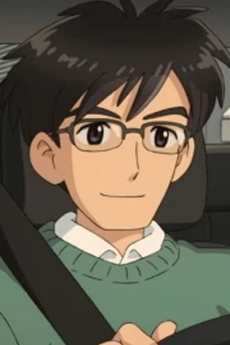
Shouji Seki
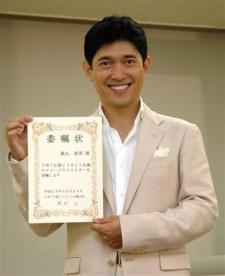
Hiroide Yakumaru
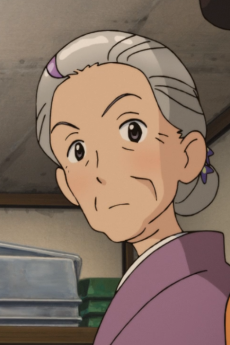
Mineko Seki
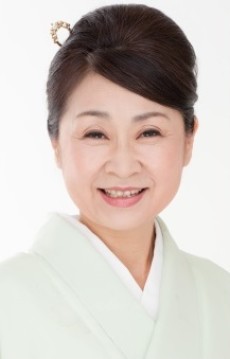
Harumi Ichiryuusai
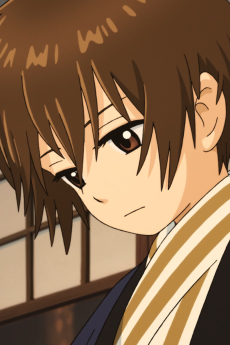
Akane Kanda
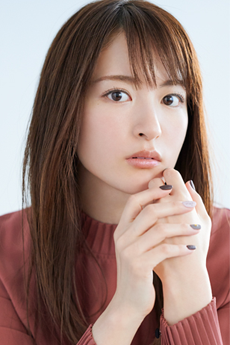
Mikako Komatsu
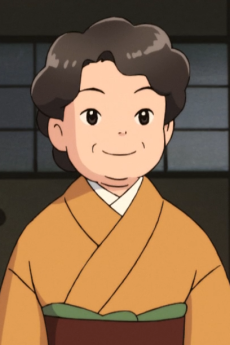
Etsuko Tajima
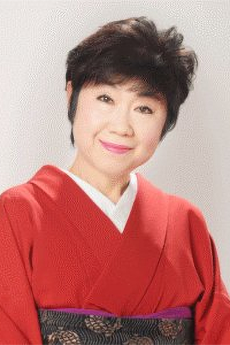
Teiyuu Ichiryuusai
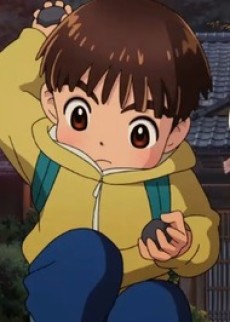
Shouta Kise
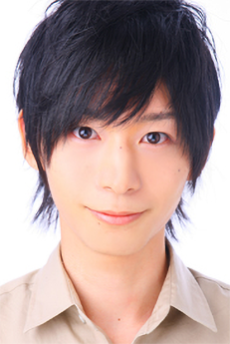
Masato Tanaka
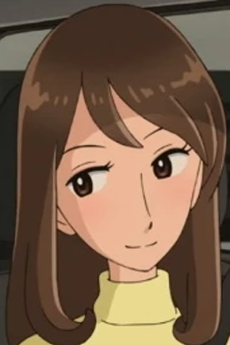
Sakiko Seki
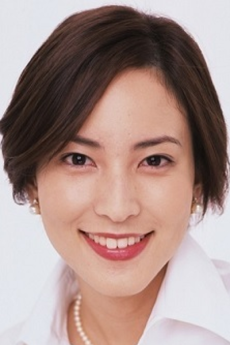
Anju Suzuki
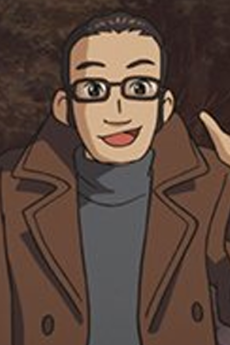
Bunta Kise
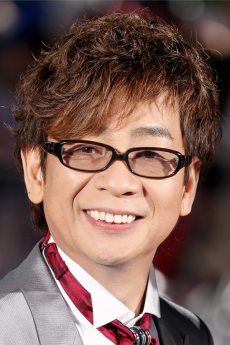
Kouichi Yamadera
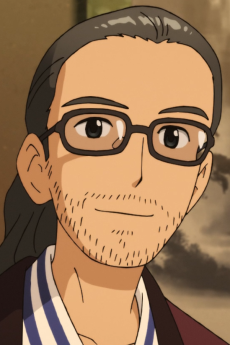
Kousui Kanda
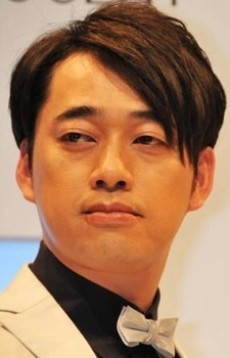
Osamu Shitara
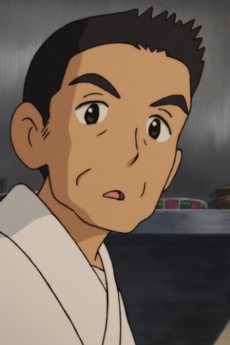
Kounosuke Minoda
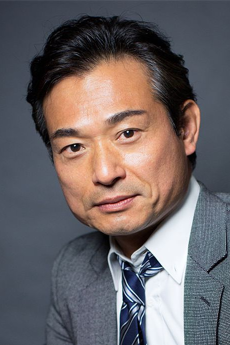
Masaki Terasoma
RELATED TO WAKAOKAMI WA SHOUGAKUSEI! (MOVIE)
REVIEWS

JTurner82
97/100"Harunoya rejects no one."Continue on AniListOkko's Inn, a disarmingly charming, instantly likable Japanese animated feature, is the sort of family-friendly movie rarely seen from a lot of western productions of this type nowadays. While most kiddie flicks I've seen these days tend to go for loud, noisy, in-your-face schtick and disgusting scatalogical humor for the heck of it, this one instead aims to be a more gentle, down-to-earth sort of tale. Whatever humor we get is thankfully brief and of the clean and clever kind. More importantly, it's a film with a lot of heart. It's only weakness may be that it may fall somewhat short of the standards often set by, say, Studio Ghibli, but director Kitaro Kosaka (himself, incidentally, a Ghibli veteran) still manages to make this a delight for kids and adults while emerging as a beautiful work in its own right.
The main character of this tale is Oriko Seki (aka Okko), a 12-year-old girl who is tragically orphaned within the first five minutes when her parents' car crashes into a derailed truck while traveling home from a performance. Miraculously surviving this incident, Okko is subsequently sent to stay with her grandmother, who happens to be the proprietor of an inn in the countryside. The inn in question, which doubles as a hot springs house, goes by the name of Harunoya, with a philosophy that all are welcome.
Naturally, it does take Okko some time to get settled into this new establishment. She is befriended by three ghosts -- two of which are children who passed away years ago: the spunky but friendly Uribo, and the sassy, mischievous Miyo -- and a pesky "demon" known as Suzuki. With encouragement from these three (invisible to all but the little girl), Okko aspires to be a "junior innkeeper". Predictably, she starts off on the clumsy side and makes some poor calls of judgment, but gradually gets better, learning lessons about selflessness and valuing life. Over the course of Okko's coming of age journey, we meet a variety of other characters, among them a sullen teenage boy, a friendly fortune teller called Glory Suriyo (who takes her on a memorable shopping trip), and a bratty rival junior innkeeper named Matsuki, who treats Okko contemptuously at every opportunity. Of course, at the major core of the story is Okko coming to terms with the fact that her mother and father are no longer with her.
A lot of this movie's subject feels strikingly similar to Hiroyuki Okra's A Letter To Momo, as well as numerous other animated tearjerkers such as My Neighbor Totoro, Coco, and Kubo and the Two Strings, but Okko's Inn manages to carve out its own niche thanks primarily to its plucky cast of characters. Okko is an easily relatable protagonist, and her similarly likable ghost buddies provide moments of gentle humor without treading into "annoying" territory. Only Matsuki comes across as downright unsympathetic -- at least for a good majority of the film -- until we find out that she, too, has troubles of her own. (As you might expect, the ending is a bit of a tearjerker, but not so much that it makes the movie downright depressing.)
In lesser hands, this tale could potentially tread into draggy territory. Thankfully, Kosaka keeps an energetic pace throughout all 96 minutes, making even the more quieter, slower moments flow without draining interest. That said, there are a couple of moments when the development of some moments feels a bit hasty, notably in the handling of Matsuki's character. Some additional scenes where we get to see her being nicer would have been welcomed, but that's honestly my only complaint.
Despite being directed by a Ghibli veteran, Okko's Inn was animated at Madhouse Studios, whose output has ranged from gritty productions like Ninja Scroll and Perfect Blue, to somber, friendlier stuff such as The Girl Who Leapt Through Time. If you're not familiar with this studio, these works you may have been fortunate to see. Okko's Inn, naturally, being among the more softer offerings of this studio, has a predictably sunny, beautiful look to it. There is a digital sort of look to the animation, but it still offers the sort of warmth that hand-drawn craft is usually known for. On occasion there are uses of computer images, but thankfully they don't stand out in all the wrong ways.
I went to see the dubbed version, provided by NYAV Post. It's yet another quality effort, with terrific performances by all involved. Madigan Kacmar does an outstanding job as Okko, providing the character with just the right amount of warmth, spunk, and heart. She has terrific chemistry with K.J. Aikens' somewhat smart-alecky but lovable Uribo as well as her other co-stars. Carly Williams' Matsuki is as snarky and prissy as you'd expect, while Tessa Frascogna's Miyo and Colleen O'Shaughnessy's Suzuki complete the trio of ghost companions for Okko. Glynis Eliis is also great as Okko's grandmother. NYAV Post has turned out excellent work lately, notably in the form of of big hitters such as A Silent Voice, Mirai, and even the flawed, forgettable Fireworks. It's gratifying to see them continue to live up to their standards here.
There have been a lot of great contenders for emotionally resonant animated features from Japan lately. Okko's Inn may be among the lesser known of them, but it certainly deserves a following. If you ever decide to check out this charmer, I highly would recommend doing so.

Juliko25
85/100Wait, a movie that's actually a better retelling of the books than the TV series?! What is this sorcery?!Continue on AniListIt's strange: Movies used to be where you could really experiment and create what you want to create. That still happens, but for movies based on TV series, they tend to get too ambitious for their own good before crashing and burning, or are just recaps, or take too little risks out of fear of pissing off their fanbase. I say there need to be more movies that really go with their own ideas and visions, and they don't always have to be epic or complex in order to work. As you know, I knew nothing of Okko's Inn before reading info on the movie, and I watched the TV series, which I admit was cute, but rather generic and tended to meander. A lot. And it played things too safe. The trailer for the movie, which is an alternate retelling of the story, promised to be better and stronger, and I was interested in seeing it, but then my local theater yanked it off their schedule when it came time for it to premiere. Needless to say, I was pissed off. But now, having seen the movie now, I'm pissed off even more, because holy crap, this movie is damn good, in that it pretty much fixes every single flaw the series had and more! Would it be considered blasphemy if I say I like this way better than the series?
The story is the same as the series: After losing her parents in a car accident, Oriko "Okko" Seki is sent to live with her grandmother at her Japanese inn. When she gets there, she finds herself befriending a ghost boy, Uribo, who begs her to take over her grandmother's inn. She pretty much gets forced into it, and through trial and error, she learns the ins and outs of hospitality and being a gracious host. She also has to deal with an annoying rich girl classmate, Matsuki Akino, who lives at the much fancier Shuukou Inn, and later befriends another ghost, Miyo, and a mischievous demon, Suzuki. The thing with the series is that it was very flawed. It had a lot of filler-y subplots that either never went anywhere, were poorly executed, or resolved too quickly. It never really knew what it wanted to do. The movie finds its focus, cuts out all of the pointless parts, and has a much tighter story arc, never straying from its intended purpose. It's still rather cliche, but by cutting out all the chafe that held the series back and attempting realistic drama, it manages to stand on its own, as much more than just an alternate continuity.
One thing the movie definitely has that surpasses the TV series in every way is its MASSIVELY improved animation. The colors are brighter, the character animation is much more fluid and less stagant, the character designs are much sleeker (and Okko's face doesn't get weirdly round and over-bloated when she's seen from a side view), the colors are a visual orgasm. Everything looks absolutely beautiful, and considering the director of this movie and a few other people previously worked for Ghibli, you know the animation is going to be good. It helps that there's a lot going on, and everything has a flair to it that the series just didn't have. It really amazes me what a decent animation budget can achieve if you put it to good use!
Unfortunately, one big downside this movie has is its music. The TV series' music was fine, if rather generic. Sadly, the movie's soundtrack suffered a lot in quality. I mean, the usage of kotos and traditional Japanese instruments sound fine, especially during the famous Shinto dance sequences, which really set the mood. The story is supposed to be subtle, but a lot of genuinely good moments wind up losing their touch when an incredibly loud set of pianos and wind instruments thunder through the speakers, overpowering everything else. A soundtrack can do wonders in enriching a story, but the soundtrack here tried too hard, and some scenes would have benefited from having some of the music toned down a bit. It doesn't help that there's a shopping montage set to a really, REALLY generic, badly sung bubblegum pop song that's just so terrible that it makes your eardrums feel like they're being stabbed by knives. Was that even necessary?
While the minor characters such as some of the staff at Harunoya and Okko's classmates aren't nearly as developed as the main three—Okko, Miyo, and Uribo, the latter trio are still very dynamic and well done here. By far the biggest change the movie did from the series, for the better, was Okko's overall background and characterization. In the series, we see her work at the inn and deal with guests, but we don't know anything about her life before the accident, and any feelings she has for her parents' loss are just glazed over. The movie decides to make this the main focus, with Okko feeling their loss, being in denial about their deaths, showing pieces of her life before coming to Harunoya, revealing how their deaths affect her personally, and really going out of their way to make her as fully fleshed out and three dimensional as possible, especially in regards to one scene near the very end, where she has to confront her painful past. It even shows Okko at school more, with plenty of scenes where she's interacting with her classmates and letting her be a kid, which the series didn't bother to do all that often. I'm really glad the movie made this change, as it gives the audience much more of a reason to care about Okko and her plight, really allowing her to shine and be the kind of flawed but engaging protagonist you want to root for. It helps that the cast in general act in a subtle manner and don't try to create more drama than is necessary.
The only other flaw I found with this movie is that Matsuki Akino, Okko's rival and a typical rich girl who picks on her, kind of got the shaft when it comes to having development, which, to the TV show's credit, she did receive plenty of there. She's only ever shown being mean to Okko, even when she's trying to be helpful, and any signs of there being more to her don't show up until near the very end. I do appreciate the movie trying to give her more personality traits, such as quoting famous people (Though, what 12-year-old kid would quote Bill Gates or Leo Tolstoy? I also didn't expect a random Walt Disney quote in the movie either) and having her be genuinely knowledgeable about inns and how they work, so I'll give the producers credit for that. When I saw the English dubbed trailer for this movie, I thought her voice actress didn't sound quite right at first. I felt like she was trying too hard to sound over the top and theatrical, even for that character archetype. Thankfully, she's much better in the final product, and the over-acted line in question makes more sense in context. NYAV Post worked on the dub, and while I wouldn't consider it one of their best efforts, with a few stilted lines here and there, and one scene that didn't make sense to me in translation (I haven't seen the Japanese version yet), it's still a very good dub overall.
They say that sometimes, less is more, and I think this version of Okko's Inn is a great example of that. In any case, I'm still amazed at how well this movie turned out, flaws and all. Definitely check this out if you want a sweet, wholesome, but still engaging and fun movie.

RiverSorcerer
75/100A incomplete but beautiful look at grief, loss, and healingContinue on AniListWe will all suffer loss; this is one of the few truths we have in this world. How then are we supposed to grabble with this fact? Should we deny it all together? Accept it to the point of rejecting living? Or do we learn about it, accept it, and move on?
Okko's Inn is a family film darker than what you'd expect from an American counterpart, opening with a car crash that kills the protagonist's family and realistically showing the consequences of trauma throughout the film, but that's central to the film's tone, one of the key parts of the film. It's a honest film where characters, particularly Okko herself, don't just forget their trauma the next day or month after it happens. It lingers with them, comes up at the most unexpected moments. Even something as seemingly minor as getting jilted can live an immense impact on you. However, it does not trap these characters into cynicism or eternal pain; it's honest, not bitter. It recognizes that, with love and care, we can get better, learn more about ourselves and others, understand what we truly want from the world. Instead, the film demonstrates that, when you start opening yourself up to others and acknowledge the ways that they have been hurt, only then you can move forward.
The film enhances its tone and message with a beautiful and charming aesthetic. Madhouse really put their effort in depicting the tranquil charm of rural Japan, from the grassy paths to the titular inn that feels as cozy as the ideology behind it states it should be. It is Ghibli-lite to a certain extent but is still able to create its own identity, particularly in the ways it's able to create different senses of movement and corporality. Dealing with both humans and spirits means having to make sure that the movements of each group feel accurate to how they’d work in the real world (you know, if the real world had ghosts and whatnot). More importantly than anything else, it’s just really cute and wholesome. Okko’s an adorable bean and the character design combined with the voice acting give off a strong protective urge, particularly during her more vulnerable moments.
However, it would be remiss if I didn’t discuss the one thing that prevents this movie from being really good, which is its structure. The first two thirds of the movie have a pretty solid episodic narrative, with each small plotline allowing Okko to better understand herself and what kind of person she wants to become while still creating closure or connection with the other people that come into her life. Of particular note here is Glory, a faux-psychic who becomes an older sister figure to Okko, helping her grapple with her emotions while also giving her time to be the happy child that she should be. However, the final third of the film begins to fall apart as there’s a sudden jump to new circumstances that don’t feel entirely related to what has occurred before. While the climax of the film provides a good sense of how Okko is going to treat her trauma moving forward, the final scene leaves me feeling a bit too empty, like there’s just a bit more you can get out of this story.
It's not a perfect film but I’m fine with it that way. It tells the story that it needs to: One about guilt and grief and loss and finds a way to locate what matters to us and to hold onto it.
SIMILAR ANIMES YOU MAY LIKE
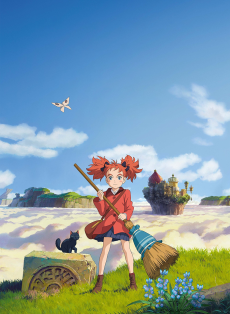 MOVIE AdventureMary to Majo no Hana
MOVIE AdventureMary to Majo no Hana MOVIE AdventureSen to Chihiro no Kamikakushi
MOVIE AdventureSen to Chihiro no Kamikakushi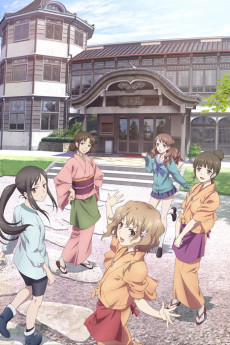 ANIME ComedyHanasaku Iroha
ANIME ComedyHanasaku Iroha ANIME DramaNatsume Yuujinchou
ANIME DramaNatsume Yuujinchou ANIME ComedyShokugeki no Souma
ANIME ComedyShokugeki no Souma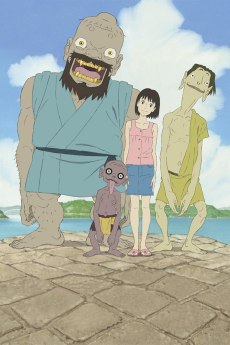 MOVIE DramaMomo e no Tegami
MOVIE DramaMomo e no Tegami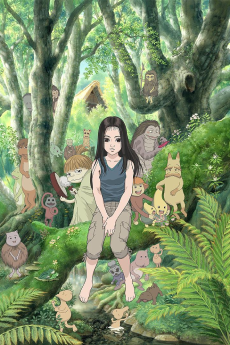 SPECIAL DramaMiyori no Mori
SPECIAL DramaMiyori no Mori MOVIE ActionMononoke-hime
MOVIE ActionMononoke-hime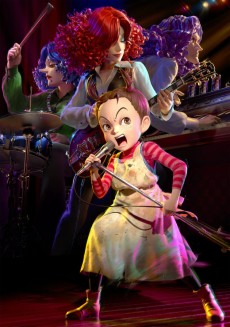 MOVIE FantasyAya to Majo
MOVIE FantasyAya to Majo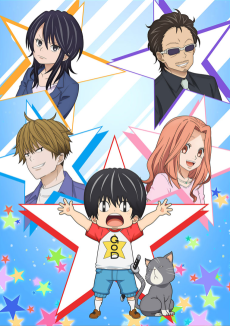 ONA ComedyKotarou wa Hitorigurashi
ONA ComedyKotarou wa Hitorigurashi MOVIE AdventureMajo no Takkyuubin
MOVIE AdventureMajo no Takkyuubin
SCORE
- (3.7/5)
TRAILER
MORE INFO
Ended inSeptember 21, 2018
Main Studio MADHOUSE
Favorited by 110 Users
Hashtag #若おかみは小学生

